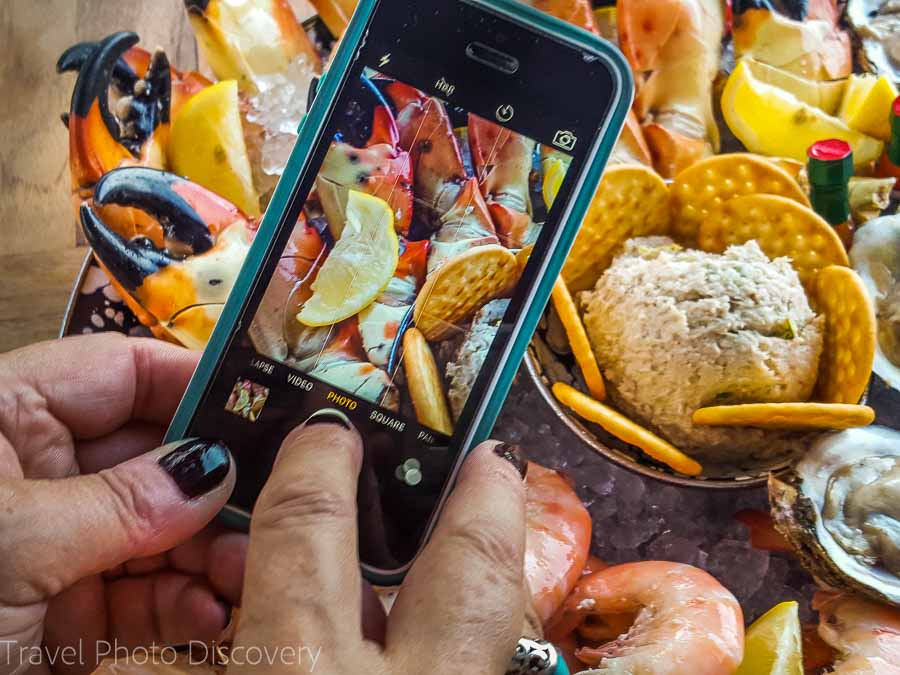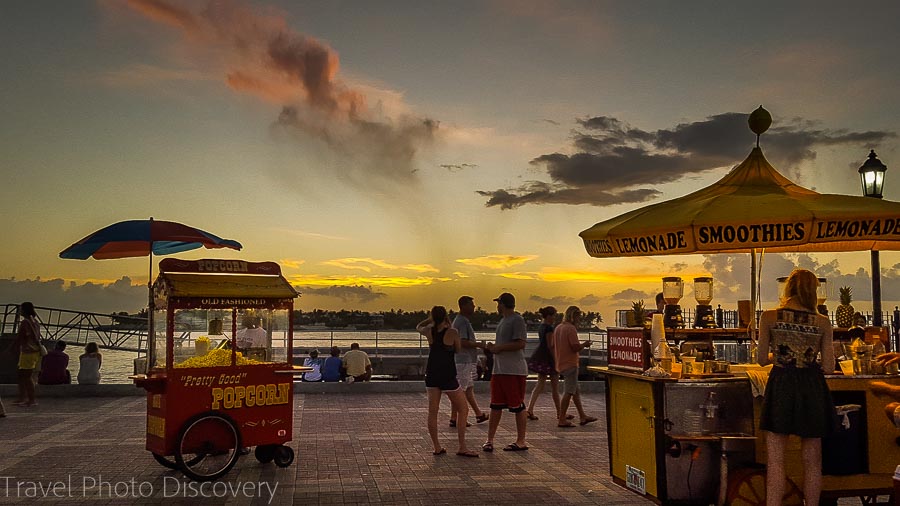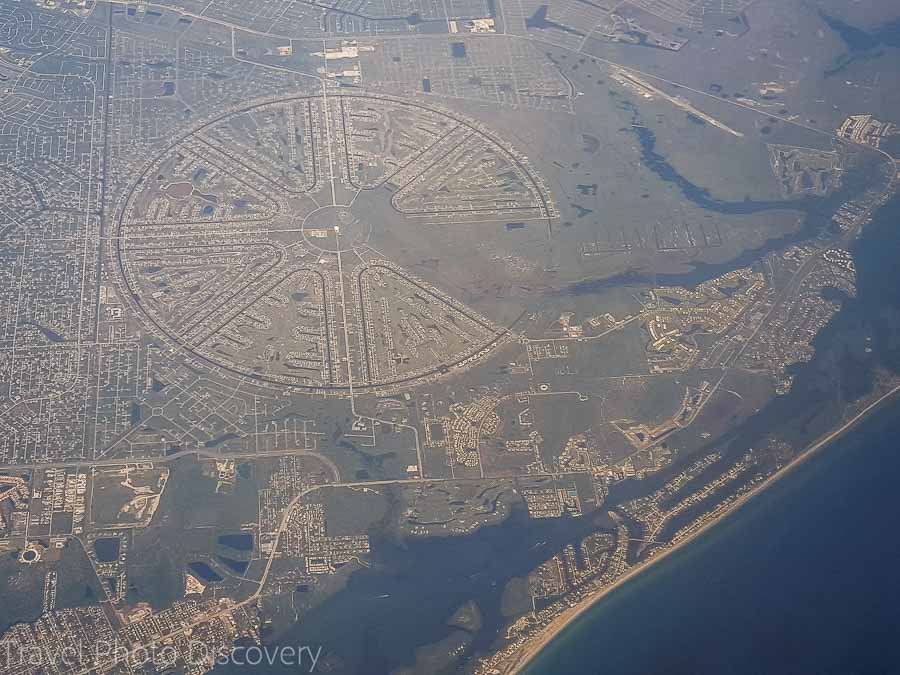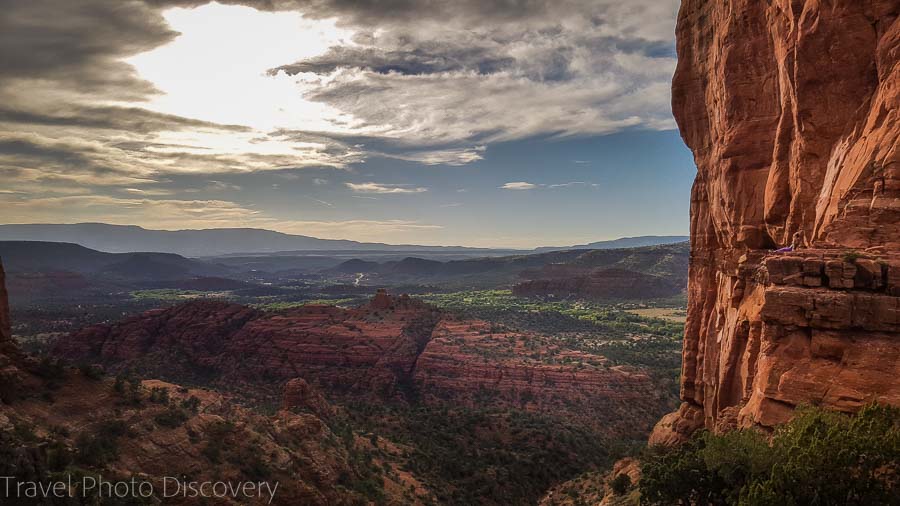Top photo tips for mobile phone photography
So many photo hobbyist and other casual photographers are spending a lot more time using their smart/mobile phones for everyday photography, travel and lifestyle needs. While it’s easy to go around with your camera and just snap what’s in front of you and for that matter take a lot of photos and delete what doesn’t look good, there are some wonderful tips to also consider to bring your cell phone imagery up to another notch.
Here are some photo tips to make your cell phone images pop
Shooting beyond broad daylight shots
Yes of course most places open past 9am and it is broad daylight and busy everywhere. But for the lucky few who go out of their way to capture a destination or scene during the golden hours before and after sunrise/sunset will be rewarded with amazing light, great photo locations with minimal crowds and something unique to share. It’s great if you can actually be present during a perfect sunrise or sunset, but those times even before and after the golden hours are just as good like the image below done right after a beautiful sunset in Key West.
Shooting at twilight in Key West, Florida Keys
Shoot in landscape mode
Most images look so much better in landscape mode especially if you are sharing them in social media. Outside of tall structures/monuments that will fit into a portrait shot, everything else looks better in a landscape orientation. For some social media platforms like Instagram, profile images are typical, although you can also present images in landscape.
Clean your lens
That small picture window can easily get dirty and smudged, so make it a habit of cleaning your front and back lens. This will insure no strange spots or smears especially when your taking your phone out from a messy purse or pocket
Follow the rule of thirds and other basic photography rules
A basic and well used photography rule, placing your subject in one of the three areas gives a more pleasing and dynamic image. You can check more details about using the rule of thirds here. For that matter, many of the other basic photography rules like filling the frame, leading lines, patterns and color should also apply using smart phones photography. To learn more about basic photography composition rules, check out this link here for a comprehensive guide.
Following the Rule of thirds with this floral image above
Don’t be afraid to take lots of shots
Yes, take more than a few photos of your subject, you never know which shot turn out bad or have some distractions in your picture. Eliminate that problem by taking a few more shots of the same subject, you will have a better selection and won’t regret taking the one important shot which ended up blurry or photo bombed!
Using the grid lines option when taking a photo
Most smart phones will have an option to put grid lines on your screen (check your camera settings and set to on) so you can easily make sure that your horizon lines are straight. Also the grid lines will break into the rule of thirds with the intersection points which is perfect for you to focus on your subject and make sure it is placed correctly at any of those intersection points. (check the segment above about the rule of thirds for more details)
Shoot different angles and heights
Images look more interesting when taken from above looking down or just the opposite from ground level looking up. This gives you an opportunity to make something ordinary and turn it into a more interesting or pleasing composition. Also, why not try taking some photographs from different angles to accentuate your subject matter and create some distortion, energy and exciting new presentation. Taking photos from different angles or heights forces you to look at things in a new way and maybe come up with something out of the box and not the typical type of presentation expected in an ordinary landscape, portrait or even a selfie and create something unusual and exciting to look at.
Shooting the Florida coastline and fascinating landscape patterns
Stabilize your camera
It’s very easy on a small phone to shake it while you are taking a photograph which always ends blurry. So try to use both hands to stabilize your capture, Use some stable prop to place your phone on, or better yet, use a selfie stick or a mini tripod to keep that phone stable. These techniques will give better results and sharper images.
No digital zoom photography
Most smartphones do not deliver great images because of optical zoom deficiencies and typically deliver poor quality imagery. It’s better to just take a straight photo from your camera with no zoom and then edit the image by cropping out any parts to focus on the central image. If you want to do major cropping, make sure that you set your camera for the highest resolution settings on your camera so you do get sharp images when you make those crops.
Use HDR for certain compositions
HDR is perfect to be used in various conditions of low light to extreme light conditions, or even if you want to focus on one object and make it really pop. High dynamic range is perfect used on images that have high contrast or low light situations so that the program mode evenly spreads the light effects into a more pleasing image. In this example below the sun was setting quickly and made the foreground darker, but putting it in HDR mode lightened out the foreground and toned down the bright light in the background.
Using HDR settings to spread out light from low light to contrasting light
Easy Focus and exposure control features
On newer models of smart phones including IPhone, Samsung, LG and a variety of other phones, you can easily use your finger to point directly to any section on your screen for selective focus. On many smart phone models, you an exposure control slide is available to use to also play around with exposure to increase or decrease light. (If this is does not set up directly on your phone, look for this feature in your camera settings. Go ahead and experiment with this feature on selective focus and exposure control and try it at any location you want to photograph. It’s fun to just go out and experiment with your camera using these features and seeing the effects you create from just pointing your finger on the screen.
No flash – just natural light
Since the flash located on your smart phone is too close to the lens, most images taken will have extreme glare and unflattering light. For many smartphones, try to find the low light option on your phone settings or just try and find available light around your subject matter so it can illuminate everything in focus. You can also make adjustments to your ISO and exposure to increase light on your subject. You can also use your HDR setting for very dark conditions to create a composition that adds more light into an image.
Post processing filters
There are no rules about using or not using these filters on your smart phone, so if you just want to experiment and create something fun or fresh, go right ahead! Using cell phone imagery is all about what you want to present and it’s fun to create different effects on filters that fit your mood and requirements. You can always switch it back to its original setting if the results don’t give you the effect that you were looking for.
Use a better photo imaging app
I suggest getting a full-on image editing app like the excellent SnapSeed, Photoshop Express, or iPhoto. You can make more adjustments on exposure, sharpness, color temperature and other adjustments you can make for personal preferences.
Experiment and have fun
Having a cell phone allows for more flexibility and lets you shoot easily into many situations and experiment. The best part of this is being in the moment and trying out something new and presenting something that gives us a better feel for what you are expressing. This is especially true for using images to present on social media where you want to me more spontaneous and show something a little more personal.
Framed views through the Hole in the Rock in Phoenix, Arizona
Frame your views
Framing the area around your main focus with something interesting in the foreground or surrounding the entire composition creates a very interesting presentation. This not only draws your eye into the picture, you also get to see the transition from the foreground into the main body of the picture. Try to see if you can frame your views which help to create interesting depth of field and an interesting composition.
Show me the details
Don’t be afraid to get up close to show me something interesting that catches your eye or shares an interesting view of point. To get sharp and concise images make sure you shoot from your smart phone in normal mode and crop the image afterwards or just use your feet to get up close to your subject. Using the zoom feature on your smart phone typically loses the sharpness factor, so use your feet to get up close.
Break all the rules
That’s right, now that I gave you some fantastic tips and ideas, you can decide to use any of these tips or just break all the rules and do something fun and creative on your own. That’s the cool thing about using a smart phone is that you can create a lot of instant and quick picture and if it doesn’t look good, it’s just as easy to delete them. Concentrate on presenting a complete story, capture the mood and light and experiment with your camera. Afterwards, you can process the better images with a post processing app and delete the ones that didn’t make your cut.
Learn more photography tips
If you enjoyed these cell phone tips above, check out some of my other photography tips and suggestions below, most of these also apply to cell phone photography
15 photography trips on your road trip
Black and white photo tips for beginners
Capturing street images – some photo tips and techniques
15 Instagram tips for better photos and compositions
10 Photography tips for grey sky or rainy days
Flower and nature photography – tips on making your images pop
Photographing people – some tips and techniques
Photography tips for travel Photography
Travel photography – what to pack
Photo tip – backlighting your image
Food photography – making your images pop
Thanks for visiting today, if you enjoyed reading this post on Top photo tips for mobile phone photography, please do share it with any of the social media links below, thank you.
If you like what you see, come and check out my other social media channels for more updates, including Instagram, Pinterest and Twitter.










Bookmarked! Came here from iPhonephotographyschool. Surely these tips are very different, thank you for sharing these.
Great tips!
Great tips Noel! I turned off the HDR on my iPhone awhile ago. I’ve gotta go back and experiment with it. Thanks for the reminder.
All great tips Noel. I love hanging up my camera for a day and using the iphone. It’s so freeing and does give you a different perspective. I can’t seem to get the long distonace shot down, but will keep at it.
Great tips. I’ve stopped using the zoom on my phone because the pictures weren’t very good. I’ve never used HDR on my phone, but I will keep it in mind for low or extreme light conditions.i love photography and want be professonal wild life photograffer..
sajeeb mahedi….
I’ve always been a conventional camera (DSLR) photographer and used to rarely use my iPhone for photos, but I’m trying to remember to take more with my phone, especially if I want to post to Instragram right away. You get great pix with your phone! Thanks for these tips. I am waiting to upgrade to the iPhone 7, which I have heard has a much better camera than my 5s. Mobile phone photography has come a long way, and knowing how to make it the best it can be is very helpful. Thanks, Noel!
Thanks for sharing these tips. You are a wonderful photographer! Cleaning the lens is so obvious, so important, but so often forgotten!
These are all great tips and I practice most of them. It is amazing to see the possibilities with an iPhone camera. I can’t wait to get the 7s – I hear the camera is even better. Great post!
Thanks Suzanne for commenting and sharing the post as well, I appreciate it.
What great tips- will have to read this again. Love the red rock shots. The southwest is so spectacular.
Wonderful tips, Noel. I confess to taking most of my photos on my iPhone 6s and they turn out pretty darn well. I live not having to carry around heavy camera equipment any longer. If used to weigh me down and make me cranky. 😎
Great tips! I never really understood when to use HDR so this helped clear things up for me!
Yes, there is a right way and more experimental way people use HDR to push the boundaries – I typically use it as natural as possible for what its true purpose is made for
Which HDR app are you using?
Most newer smart phones have an HDR function built in, if not, I’m sure you can find a good app in the Google or Apple store.
Great tips Noel!
Great tips! I learned some of these the hard way. Wish I’d read this earlier – especially the no zooming part.
I don’t use my phone for pictures a lot but sometimes I spot something I want to photograph when I’m out without my camera. So I’m always on the lookout for good tips like these – I’ve never tried using HDR but I’m going to start experimenting with it now.
Thanks for these tips Noel. I use my mobile all the time to take photographs and must be honest, I thought Social Media preferred Portrait mode, so it’s good to have tips like these – thanks.
Great tips. I’ve stopped using the zoom on my phone because the pictures weren’t very good. I’ve never used HDR on my phone, but I will keep it in mind for low or extreme light conditions.
Love these tips 🙂 I’ve tended to avoid sunrise and sunset with my mobile phone, but why, I’m not sure – as you say you can get great results. I didn’t know that it’s best not to zoom with your mobile, but it makes sense, and much better idea to crop and zoom in the editing rather. Thanks Noel – a very useful post for me today 🙂
We can’t seem to take great photos with our cell phone. Yours are much nicer :-). But we’ll remember that tip about not zooming and cropping later instead – thanks!